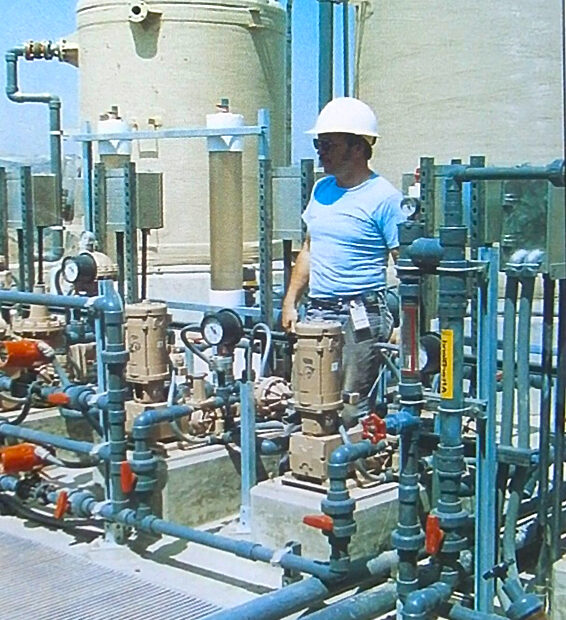From the archives:
Increased Reliability of Pumps
Improve Water Treatment Plant Efficiency
The Trinity River Authority of Texas (TRA) wanted to ensure its regional water treatment system maintained its water quality standards, while increasing capacity, and reducing costly maintenance. To provide six million gallons per day of portable water to area residents.
Everyday 330 gallons of alum are added to incoming river water to remove mud and suspended solids, along with 200 gallons of 50% caustic soda to raise the water’s pH level. In the past, the corrosive nature of the chemicals caused significant problems in the plant’s metering pumps. Chemical incompatibility caused pump heads to crack, increasing downtime, and driving up costs for maintenance and replacement parts.
AquFlow (formerly Hydroflo) was approached to upgrade the metering pumps and provide a solution that would increase the capacity and reliability of the system. Supplying four pumps: a simplex and duplex pump for alum injection, a simplex pump for caustic soda, and a simplex pump on standby for general service.
Today, the pumps have been operating for over a decade, providing reliable performance and minimal maintenance. The new pumps significantly improved 3 key areas in water treatment plant operation:
Chemical Resistance
According to Keith Coogler, maintenance supervisor “The check valves in our old pumps had a significant chemical incompatibility problem. The chemicals we use have a tendency to crystallize in cold weather. If the pump isn’t stroking fast enough, crystals can form and prevent proper check valve seating. And since our old pumps could only run at 25 to 30 strokes per minute, crystallization was always a problem. The new pumps, on the other hand, run at around 96 strokes per minute. This keeps the chemicals from crystallizing, so the ball valves can seat the way they’re supposed to.”
Pump materials were carefully selected to provide chemical resistance. Large free-volume, straight through flow ball check valves assure non-clogging operation. The drive of the pump is also fully enclosed to prevent chemicals and the elements from reaching critical operation components.
Capacity
“We need greater capacity for alum injection to accommodate rapid increases in turbidity that can occur in heavy run off. After a storm, turbidity can go from the teens to several hundred in only a couple hours. The duplex unit lets us handle that.”
Pump capacity can be adjusted from 0-100 percent at any time, even during operation. A built-in automatic reset relief valve also protects each pump against system blockage and eliminates the need for external relief valves.
Reliability
“The simply, durable design of the pumps has had an impact on operations here. Our old pumps had three times as many parts, so there was a lot more to go wrong. The new pumps have a more simplistic design, so repairs go quickly, when they’re needed. As a result, we can keep downtime to a minimum. All in all, we’re getting better performance than we did before, under the same type of conditions.”
